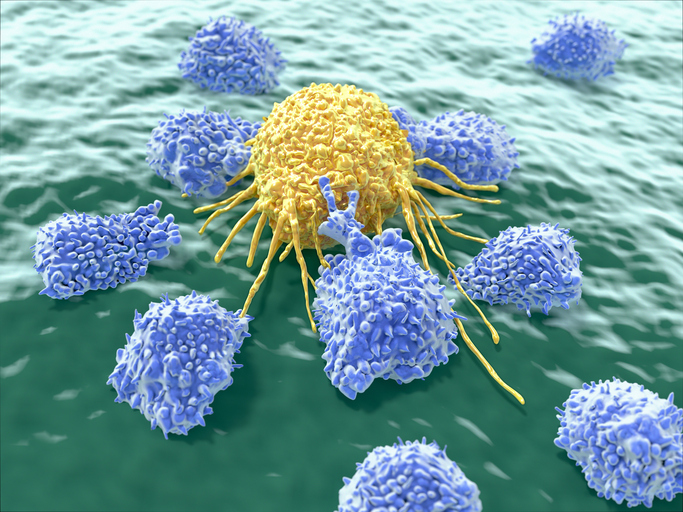
German clinical-stage biopharma company Affimed and MD Anderson today announced a development and commercialization agreement in immuno-oncology that will evaluate Affimed’s bispecific antibodies in combination with the natural killer cell (NK) technology of MD Anderson.
Affimed’s calls its bispefic antibodies “TandAbs” due to their tandem antibody structure, which is designed to direct and establish a bridge between either NK cells or T cells and cancer cells. TandAbs can bring NK cells and T cells into close proximity and trigger a signal cascade that leads to the destruction of cancer cells, according to information provided by the company. The company currently has five clinical programs running, the most advanced is its Phase II program with its candidate TandAb AFM13, targeting the tumor marker CD30 for Hodgkin’s lymphoma.
“In our effort to broaden the applications of our NK-cell engager products, we are excited to partner with the world-leading NK-cell experts at MD Anderson to investigate their unique product together with our first-in-class NK-cell engager AFM13 in Hodgkin's lymphoma,” said Adi Hoess, Ph.D., CEO of Affimed. “Harnessing the advantages of both antibody-based and cell-therapy approaches has the potential to better exploit the therapeutic activity of NK cells. We believe this partnership could benefit many hematological malignancies, including in multiple myeloma, where Affimed is developing AFM26, a BCMA/CD16A bispecific antibody.”
Under the terms of the collaboration, MD Anderson will conduct preclinical research on the combination of its NK cells derived from umbilical cord blood in combination with Affimed’s NK-cell engager AFM13. Affimed will fund the research activities, which are intended to include a follow-on Phase I trial, and holds an exclusive option to worldwide rights to develop and commercialize any products that arise from the collaboration.
Elizabeth Shpall, M.D., professor of stem cell transplantation and cellular therapy at MD Anderson, and co-leader on the project, believes the collaboration “holds true potential to produce a novel cellular therapeutic for the treatment of high-risk Hodgkin's lymphoma.”
AFM13 is a bispecific NK cell TandAb that targets both CD16A on NK cells and CD30 on tumor cells. AFM13 is designed to treat CD30-positive malignancies including Hodgkin’s lymphoma and T-cell lymphoma. AFM13 is being developed both as monotherapy and in combination with other therapeutics, such as Merck’s checkpoint inhibitor Keytruda.













